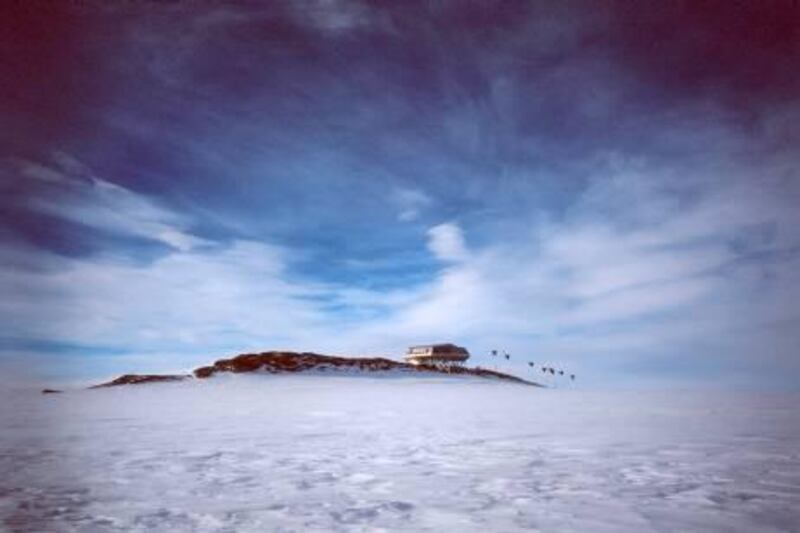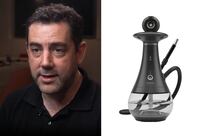DUBAI // A research station in Antarctica running entirely on renewable energy, a manufacturer of solar air-conditioning units and one of the top environmentalists in the US are among the entries in the running for the Zayed Future Energy Prize this year.
Belgium's Princess Elisabeth Antarctica Station, the Swedish company ClimateWell and California-based Terry Tamminen are on a shortlist of 40 candidates announced yesterday for the $1.5 million (Dh5.5m) prize.
The Zayed Future Energy Prize - in its third year and dedicated to Sheikh Zayed, the founding President of the UAE - awards outstanding work in the field of renewable energy. In addition to first prize, two runners-up will receive $350,000.
The shortlist was selected by a group of local and international experts and drawn from 391 entries. The selection committee reviewed applications from businesses, non-governmental organisations and individuals working in all aspects of clean energy including solar and wind technologies, clean transportation, advanced biofuels and energy storage.
Dr Sgouris Sgouridis, the chairman of the review committee, said the process of selection was "very challenging yet rewarding. The number, calibre and impact of the entries were impressive."
Almost half of the shortlisted entries - a total of 18 - are from the US, with the rest coming from 12 other countries including the UK, India, the Netherlands, China, Brazil, Japan, Denmark and Croatia.
The International Polar Foundation - one of two Belgian entries on the shortlist - runs Antarctica's carbon-neutral emission research station, the world's first. Besides providing scientific information, the Princess Elisabeth Antarctica Station also showed that it was possible to build and operate a carbon-neutral building anywhere in the world, said Thierry Touchais, the executive director of the foundation.
"It is an emblematic achievement," said Mr Touchais. "It shows that the technology existing today allows to build and renovate housing with low carbon emissions."
Inaugurated in February last year, the station uses solar and wind energy in an area where temperatures reach minus 50°Celsius. It also has a grid, operated by computer software, that is three times more efficient than existing networks.
Mr Touchais said it was "really exciting" that the Princess Elisabeth Antarctica was shortlisted for the Zayed Future Energy Prize. "We passed some difficult checks and are now keeping our fingers crossed for more."
ClimateWell was founded in 2001, using solar power to run air conditioning - a primary energy user in homes.
The company, which sells its products in Dubai and Europe, estimates that the average family can reduce their carbon footprint by up to 15 tonnes of harmful emissions per year simply by switching to solar air conditioning.
Mr Tamminen, the former head of California's Environmental Protection Agency, is credited with many of the "green" policies pushed by the governor, Arnold Schwarzenegger. California has among the most stringent environmental protection and climate laws in the US.
The Prize will be awarded on January 18 as part of the World Future Energy Summit in Abu Dhabi. Former winners include Dipal Barua from Bangladesh, who through his organisation, Grameen Shakti, is providing solar electricity systems to millions of people in rural parts of the country. In 2010, Toyota was honoured for creating the first mass-produced hybrid car, the Toyota Prius.
The award's selection committee's next job is to reduce the shortlist to six finalists. A jury led by Dr Rajendra Pachauri, the chairman of the Intergovernmental Panel on Climate Change, the body that informs the UN and world leaders on climate change, will then choose the winner and runners-up.





